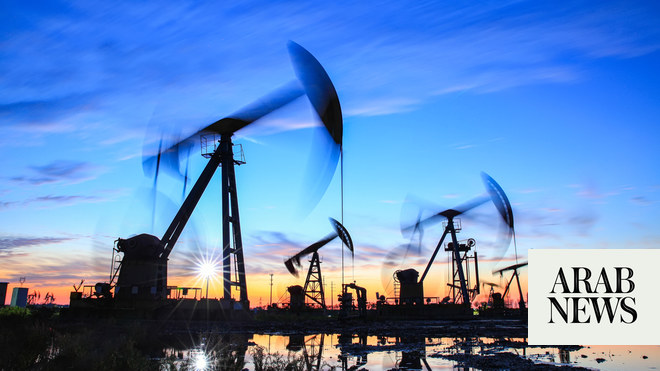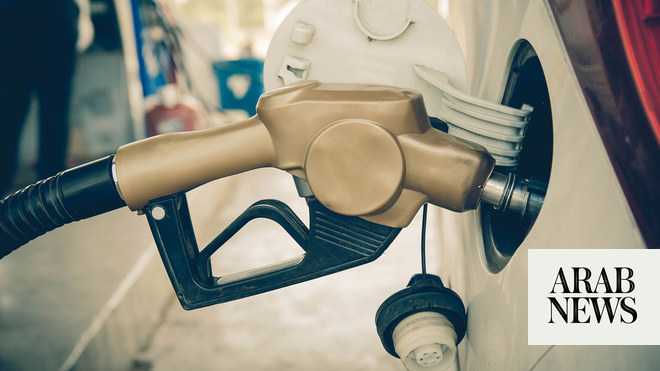
RIYADH: Oil prices were steady on Thursday as the US President met other Western leaders and investors waited to see how sanctions would be tightened on Russia over its invasion of Ukraine.
Benchmark Brent was up 0.3 per cent at $121.95 a barrel by 1111 GMT, after falling by close to $2 earlier in the session. US West Texas Intermediate was little changed at $114.96 a barrel, after also shedding $2 earlier.
NATO meeting holds the key
Amid looming uncertainties surrounding oil prices, all eyes are now on NATO meetings in Brussels today, where Joe Biden and other world leaders will discuss punishing Moscow with further sanctions for invading Ukraine.
Meanwhile, the EU is still debating on a possible Russian oil embargo.
OPEC voices concerns
The meeting comes just over a week after officials from the Organization of Petroleum Exporting Countries told the EU a ban on oil from its partner Russia over the invasion of Ukraine would hurt consumers, OPEC sources said, according to Reuters.
Major OPEC members, such as Saudi Arabia and the UAE, have tried to navigate a neutral course between the West and Moscow, while OPEC+, a grouping that includes Russia, has steered clear of the Ukraine issue in its policy meetings.
The EU, which relies heavily on Russian crude, has already imposed tough sanctions on Russia, including freezing its central bank’s assets. The bloc has been discussing whether and how to put sanctions on Russia’s energy industry.
OPEC officials including Secretary General Mohammad Barkindo met EU Energy Commissioner Kadri Simson on March 16 to discuss the “extraordinary times” for the energy market, Simson said on Twitter.
One of the OPEC sources said the group’s concerns were made clear to the EU. “They are very well informed,” said the source, declining to be identified.
Asked for comment on the March 16 meeting, an EU official said: “OPEC presented their analysis of the oil market situation and informed us of their plans in terms of oil production.”
“As we have consistently said, nothing is off the table in terms of future sanctions,” the EU official said.
OPEC’s headquarters in Vienna did not immediately respond to a request for comment.
Suez Canal hikes transit fee for oil tankers
Egypt’s Suez Canal Authority said on Tuesday it will temporarily increase a surcharge levied on laden crude oil tankers and petroleum products tankers transiting the canal in both directions to 15 percent of normal dues from 5 percent, effective May 1.
It said that ballast crude oil tankers and petroleum products tankers transiting the Canal in both directions are still required to pay a surcharge of 5 percent of normal transit dues.
The surcharge levied on laden and ballast liquefied petroleum gas tankers, chemical tankers and other liquid bulk tankers will be also increased to 20 percent of normal transit dues, from 10 percent previously.
Union workers at Chevron’s Los Angeles refinery ratify the contract
Union workers at Chevron Corp’s Los Angeles refinery in El Segundo, California, ratified the US oil producer’s last, best, and final contract offer on Wednesday, a local union official of United Steelworkers, or USW, said.
The ratification at the southern California refinery comes as USW members at the company’s San Francisco Bay-area refinery in Richmond remained on strike for a third day after twice rejecting a similar contract proposal.
“We have negotiated in good faith for months to reach a mutually acceptable agreement with our employees who are represented by the USW Local 675,” Chevron spokesperson Tyler Kruzich said, adding the company was pleased by the ratification.
Indonesia, Malaysia commit to biodiesel mandates
Top palm oil producers Indonesia and Malaysia remain committed to their mandatory biodiesel programs despite higher prices of the feedstock to reach green energy goals, senior officials said on Thursday.
Indonesia and Malaysia use palm oil as a blending for biodiesel, with Indonesia since early 2020 using a mandatory B30 — a biodiesel variant containing 30 percent of palm-based fuel — the highest mandatory mix in the world, to slash imports of diesel fuel.
Indonesia’s palm-based fuel program “will not stop at B30,” Coordinating Minister for Economic Affair Airlangga Hartarto, told a virtual industry conference.
He said Indonesia was working to use palm oil in its diesel fuel, gasoline, and jet fuels.
UK sanctions Gazprombank, Alfa Bank, and shipping firm Sovcomflot
The UK froze the assets of Russia’s Gazprombank and Alfa Bank, and the state-run shipping firm Sovcomflot, in its latest round of sanctions announced on Thursday.
They were among 59 individuals and entities added to the sanctions list which has been used to target Moscow since Russia invaded Ukraine.
Gazprombank is one of the main channels for payments for Russian oil and gas.
Alfa-Bank is one of Russia"s top private lenders, controlled by Mikhail Fridman, who was sanctioned by Britain earlier this month, and his partners.
Among the individuals sanctioned were oil tycoon Evgeny Shvidler, founder of Tinkoff bank Oleg Tinkov and German Gref, the CEO of Russia’s largest bank Sberbank, the Foreign Office said.
(With inputs from Reuters)












